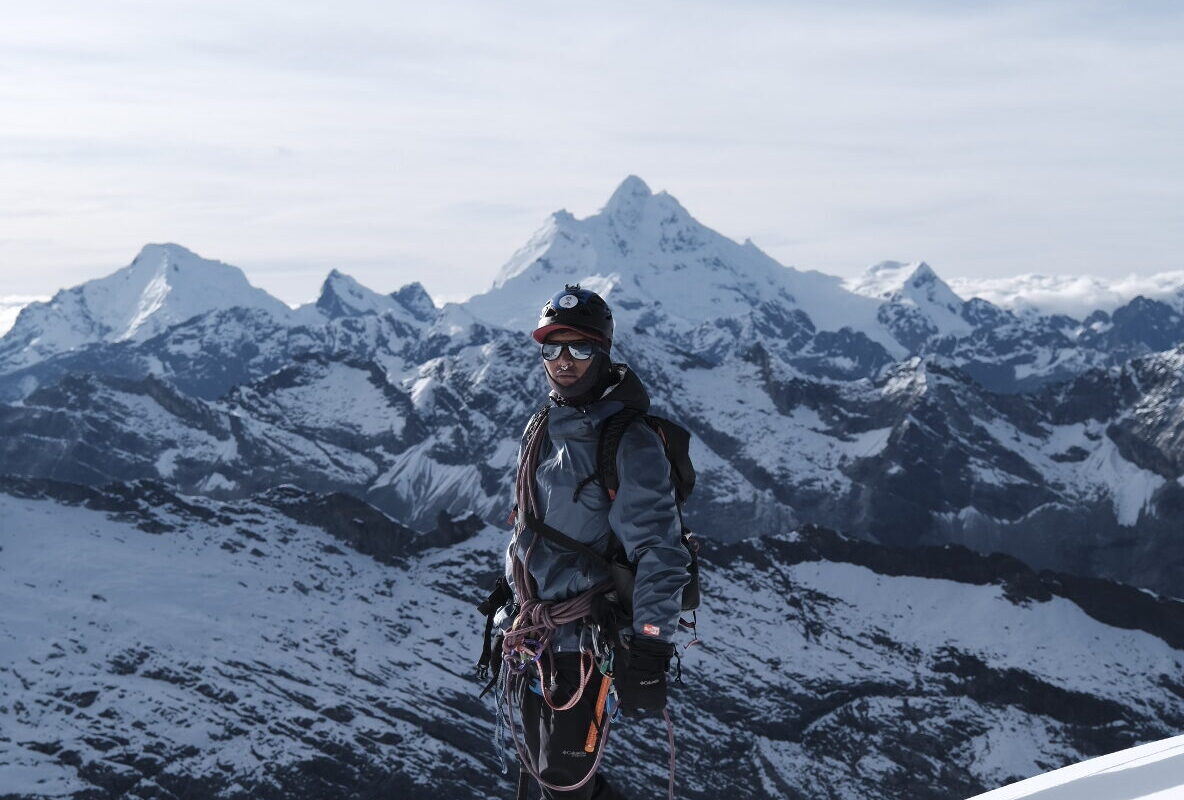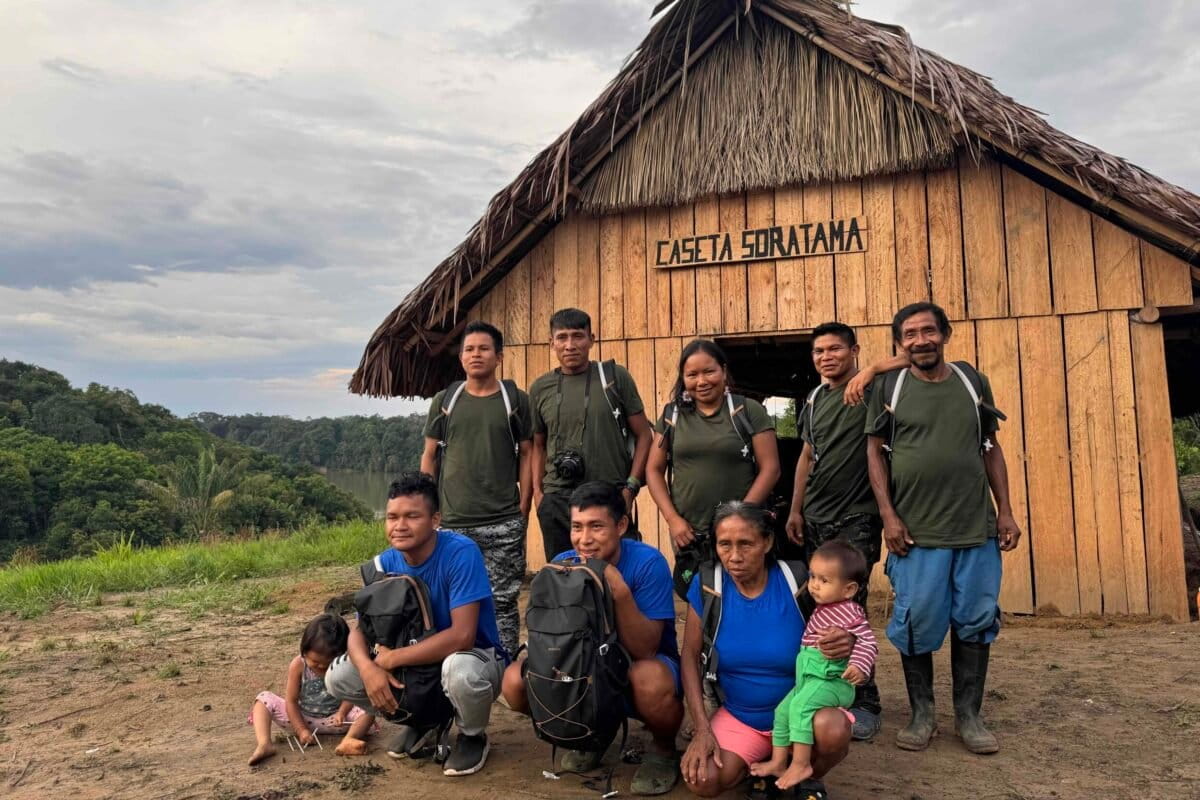- Agroforestry is an agricultural technique that combines trees with shrubs, crops and livestock in a system that produces food, supports biodiversity, builds soil horizons and water tables, and sequesters 45 gigatons of carbon from the atmosphere worldwide.
- Dean’s Beans Organic Coffee has become a successful marketer of organic beans grown in agroforestry systems across the tropics, and has won several international sustainability awards for its direct, people-centered approach to development.
- The company sources organic beans from farmer cooperatives who have implemented agroforestry systems that provide shade for the coffee plus fruit and timber trees that are also useful to people, bugs, birds, and other animals.
- The 2019 World Agroforestry Congress in Montpellier, France, from May 20-22, aims to bridge the gap between agroforestry science and its practical implementation worldwide.
Dean Cycon is an environmental and indigenous rights lawyer by training who’s been involved in community development since 1976. He founded or co-founded numerous international development groups, including Coffee Kids and also the roasters’ cooperative Coop Coffees, both very early projects of their kind. His main coffee roasting business, Dean’s Beans Organic Coffee, has become a successful marketer of organic beans grown in agroforestry systems across the tropics, and has won several international sustainability awards for the direct, people-centered approach to development.
Entrepreneurs, investors, trainers, researchers and advocates like Cycon will be convening in Montpellier, France, next week for the World Agroforestry Congress to discuss how this carbon-sequestering and biodiversity friendly agricultural practice which produces shade-grown coffee, chocolate, and much more across the world can scale up to meet the needs of people and planet.

Mongabay: How long have you been buying coffee directly from growers?
Dean Cycon: I began Dean’s Beans Organic Coffee twenty-six years ago. I was an environmental lawyer and indigenous rights advocate at the time. I wanted to see if it would be possible for a business to be directly involved with the economic, ecological and social issues confronting largely indigenous coffee communities, be effective, and still be profitable. If so, we would have a new business model that others couldn’t ignore.
A recent Mongabay feature found that agroforestry-grown coffee and cooperative business empowers indigenous women in Honduras, do you often work with such grower cooperatives?
We work exclusively with grower coops. The majority of coffee farmers are indigenous peoples living on the economic and geographic peripheries of their national entities. They have limited access to markets, information and finance and have to rely on intermediaries who drain away resources and keep farmers from becoming change agents on their own behalf. By working directly with the coops we can ensure that a lot more money reaches the growers. As important, we work collectively with the coops on development and activism focused on issues they identify as impediments to reaching their goals.

It seems like empowerment of communities in general and women in particular is one main goal of your business.
Absolutely, it is the foundation of our work, coffee is just the vehicle.We have developed a unique facilitated approach to empowerment (“People-centered Development“) where the community identifies the developmental priorities, we jointly design a program to address the issue, we fund it, and the farmers manage and own the project. No top-down, North-South hierarchies to add another layer of oppression and control over already burdened peoples. These projects range from men overcoming gender violence in Rwanda to women’s loan funds and indigenous reforestation in the Peruvian Amazon, food sovereignty and climate risk mitigation in Guatemala, Nicaragua and Mexico, and also endangered species management and farmers’ land rights in Sumatra.
How do your growers use agroforestry techniques to shade their coffee crops?
All of the thirteen coops we work with around the world are engaged in active agroforestry. One of our projects being duplicated in Asia, Africa and the Americas is the building of tree nurseries for indigenous hardwoods and fruit trees. The farmers wild-harvest the seeds, raise the seedlings and decide where to plant for shade, erosion control, endangered species and migratory bird habitat. The projects result in shade, habitat, fruit for the table and the market, wood for building the nurseries and dryers, and what the farmers call “social security” for elders who can harvest trees for timber sales when they can no longer farm. We could use that here in the United States!

Do your growers usually use or know about agroforestry & shade grown before they begin working with you?
It’s a mixed bag. We have worked with many of our coop partners for over a decade (twenty years in the case of Prodecoop in Nicaragua). We share information and techniques from other coops, often through farmer exchanges we fund. Coffee coops are getting pretty sophisticated in agroecology these days and find new information on their own as well. Recently we have been learning a lot about which trees attract which insects preferred by what birds. Pretty deep ecology, actually. The farmers are really excited to integrate this information in their tree planting decisions. I have never met a coffee farmer who didn’t fully embrace agroforestry. Conceptually, it coheres with their traditional beliefs. Practically, it works.
You were recently in Indonesia was it, what did you hear there in terms of their coffee, community, and challenges?
The biggest threats to coffee in Sumatra are a changing climate and palm oil plantations. Farmers are well organized in Sumatra and are able to meet challenges if they have the information and resources to do so [but] palm oil has devastated low and mid-level forests, and are encroaching on both high elevations (read: coffee!) and preserved lands. That’s why we are working on land rights and reforestation for both shade and for species habitat (endangered orangutans, Sumatran rhinos and tigers become trapped in increasingly shrinking lands, escape to farms and get shot or trapped). We are sharing agroforestry techniques to preserve water and strengthen soil and plants in the face of shifting rainfall patterns. We are also working to create the first certified Bird Friendly coop farms in Asia to increase farmers’ income and enhance habitat.

How are your Latin American growers facing the troubling disease challenge of coffee rust?
There is no question that rust is related to climate change. Rust is a fungus that is always in the soil, but is suppressed by healthy soils and plants. As rainfall and flowering patterns shift and soil loses nutrition and friability, the plants become stressed and more vulnerable to rust. Rust proliferates under these condition and absolutely destroys the plants. They have to be yanked out and cannot be saved. This crisis has been going on for about five years [and] it takes three to five years for a new plant to produce (the first harvest is only good for replanting, not for the cup). Coops often have some sort of safety net for members, but for those who are not members, the loss of 100% of your income often drives farmers and their families to migrate to the USA. The largest single group at the border recently are coffee farm families from Guatemala who are hit by rust and historically low market prices caused by greedy financial speculators.
Your processing facility in western Massachusetts is impressive, how many tons of beans do you sell these days?
We are lean but not mean. There are thirteen of us here in Orange, and we roasted and shipped over 600,000 pounds of coffee last year. We are not trying to grow, although we do every year. We are trying to model business done in an ethical and ecologically responsible manner.

Beside coffee, what gets you going in the morning to do this work?
The faces of the farmers we visit or who visit us every year, and the stories they share about our successes together, or the work we have yet to do. I get to travel, have a meaningful impact on the lives of people I care about, and mix it up with the Big Boys for the betterment of the planet. Who needs sleep?
To learn more, feel free to contact Dean Cycon, who likes to share what he’s learned.
This interview is part of Mongabay’s coverage of global agroforestry, see the full series here and check back for updates from the team covering the World Agroforestry Congress in Montpellier, France, from May 20-22, 2019.
Banner image: Dean’s Beans’ Guatemala program teaches young farmers about agroforestry and business management to provide for the future. Image courtesy of Dean’s Beans.















